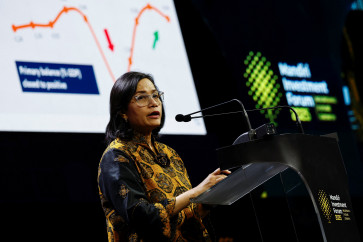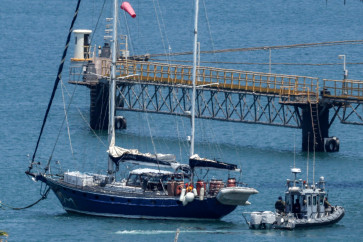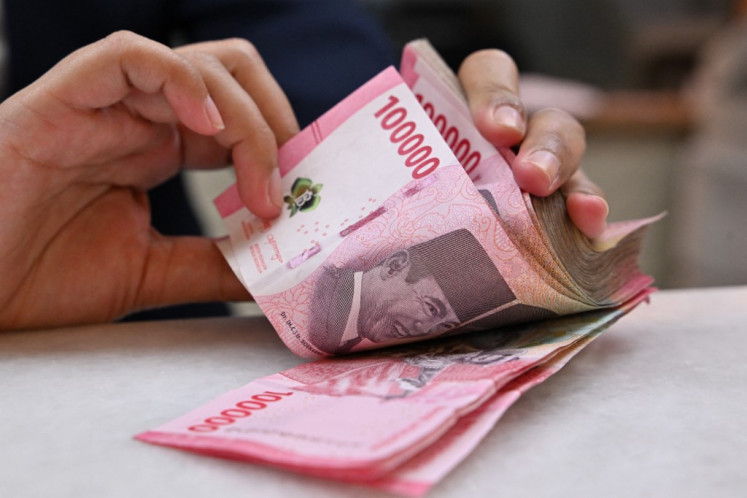Popular Reads
Top Results
Can't find what you're looking for?
View all search resultsPopular Reads
Top Results
Can't find what you're looking for?
View all search resultsIndian Ocean needs maritime law as interests intersect
Indonesia and other countries with interests in the Indian Ocean should work together to set up a comprehensive policy as the ocean is becoming increasingly important, a seminar concludes
Change text size
Gift Premium Articles
to Anyone
I
ndonesia and other countries with interests in the Indian Ocean should work together to set up a comprehensive policy as the ocean is becoming increasingly important, a seminar concludes.
The archipelago’s Ocean Council is still working on the policy with no clear sign of completion in sight, a government official says.
“A policy is yet to be completed by Indonesia’s Ocean Council,” Maritime Affairs and Fisheries Ministry secretary-general Gellwynn Yusuf said on Tuesday in a discussion. “It’s difficult to solve it even within Indonesia because every [concerned] region has their own interests,” he said of the obstacles facing the council.
In addition to Indonesia, other related countries also need a more inclusive and comprehensive policy on the Indian Ocean, he said.
Veteran Indonesian diplomat and legal expert Hasjim Djalal told the discussion that Indonesia was likely not alone concerning a lack of policy on the Indian Ocean. “I’m not aware on if ASEAN has a certain policy on the Indian Ocean. It is only trying to implement one for the South China Sea [so far],” he said.
The discussion was jointly held by the Indonesian Council on World Affairs and the Foreign Ministry.
A professor for political science at Panjab University and chairman of Indian Ocean Research Group, Sanjay Chaturvedi, explained how important the Indian Ocean was, saying that more than 70,000 vessels passed through Malacca Strait every year with about US$1 trillion worth of goods and services.
He also said transportation of 30 percent of the world’s trade goods and about 80 percent of Japan’s oil needed to use Malacca Strait.
And with India, already the fastest growing economy in the world, to double its economy in the next 10 years, the role of the Indian Ocean will become even more important, he said.
Maritime Affairs and Fisheries Minister Fadel Muhammad said in his opening remark that the government saw the Atlantic Ocean as the past, the Pacific Ocean as today and the Indian Ocean as the future in its development policy.
The government, he said, would soon release books on Indian Ocean economic policies and governance that would describe how the country viewed the ocean for food security in the future and how it would benefit from the ocean.
“Concerning the Indian Ocean, Indonesia could cooperate with India, which has an advanced alarm device technology that can predict tsunami minutes earlier,” he said.
Siswo Pramono, head of the Center for Policy Analysis and Development on Asia-Pacific and African Regions at the Foreign Ministry, separately said that the Indian Ocean Rim Association for Regional Cooperation (IOR-ARC) already had a policy on cooperation among members in the region.
“But the IOR-ARC’s policy is very immature and is hard to further develop because most of the members are small countries,” he said.
The 18-member international organization aims at sustainable growth and balanced development of member countries by exchanging information on trade and investment regimes.










